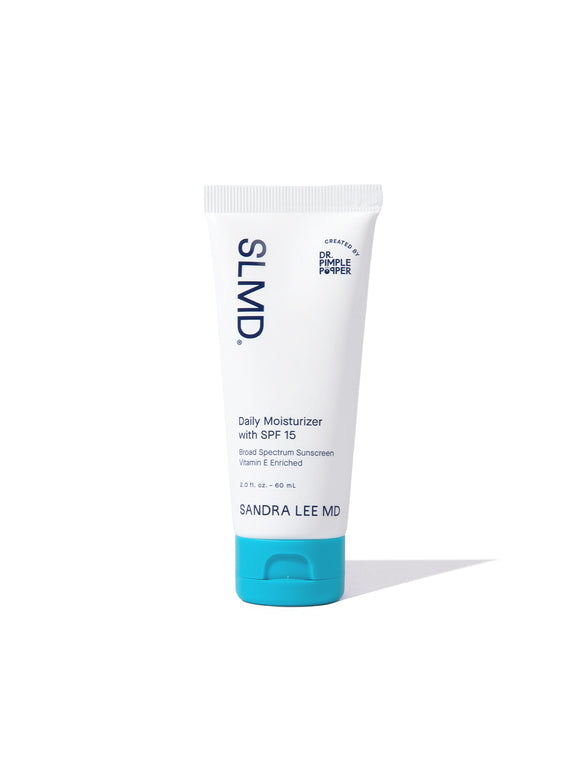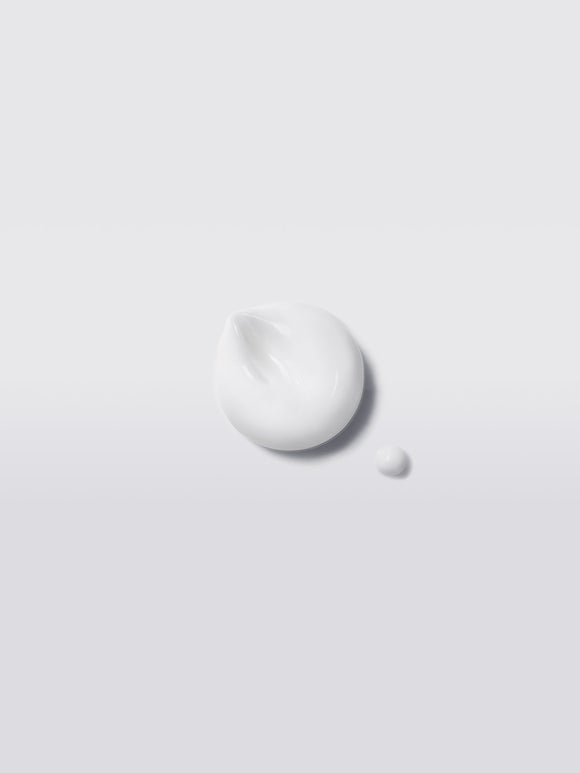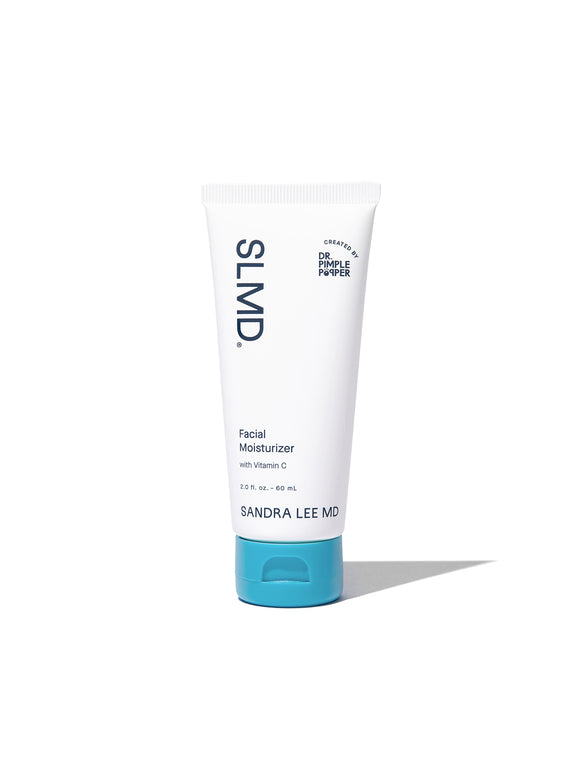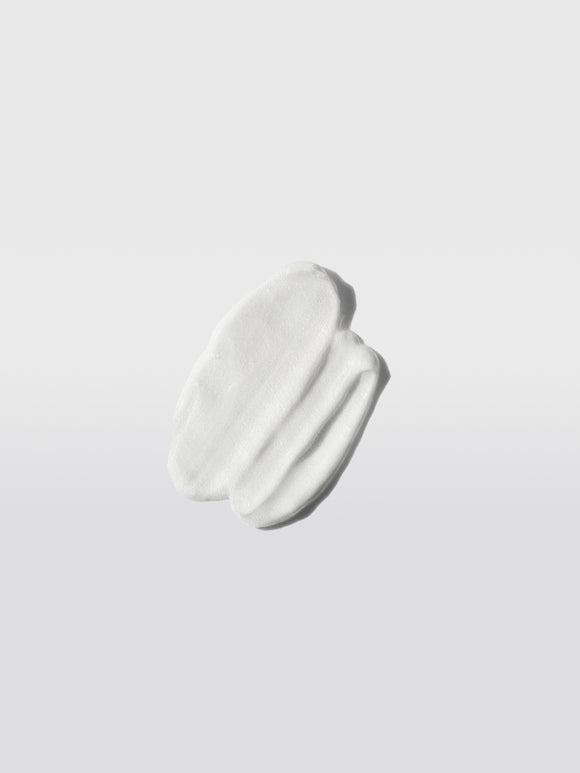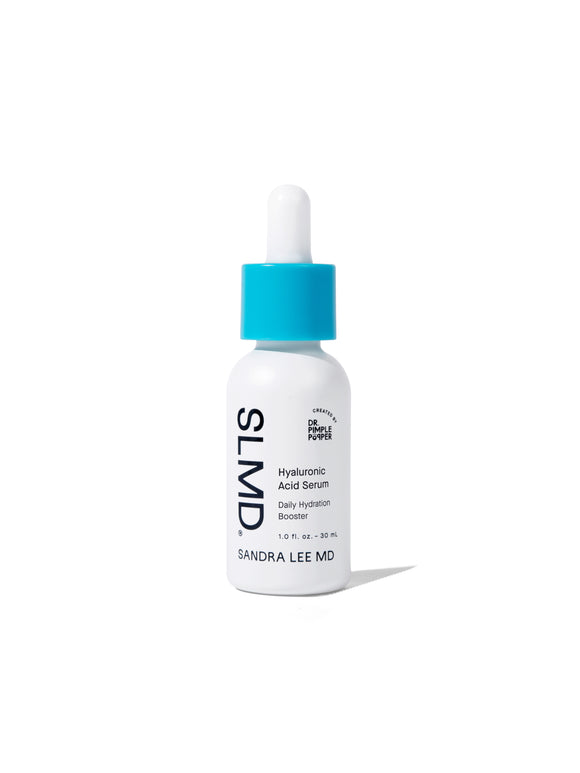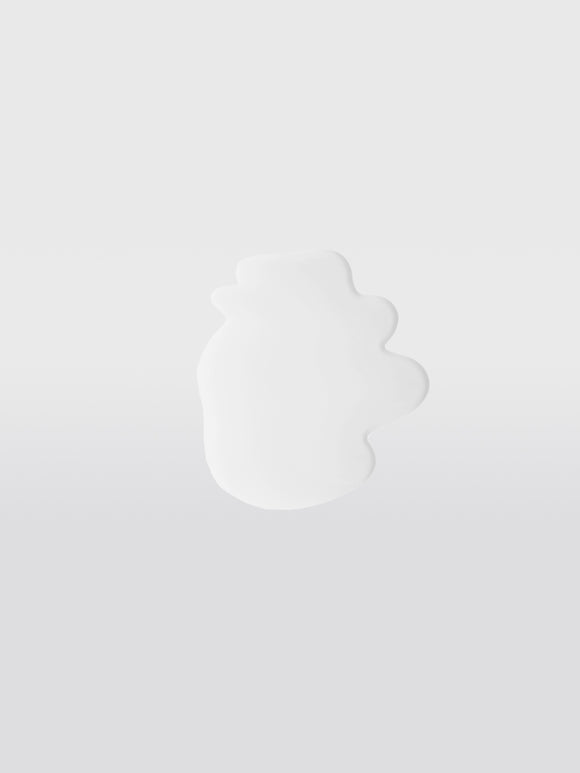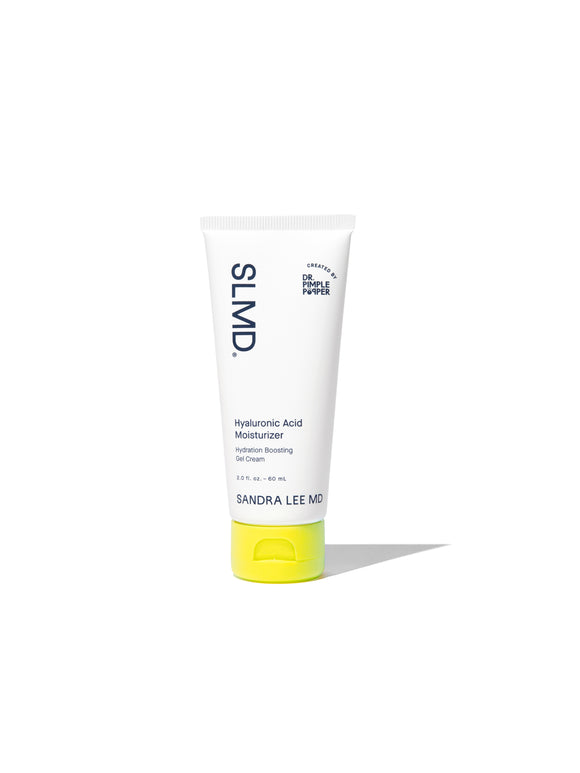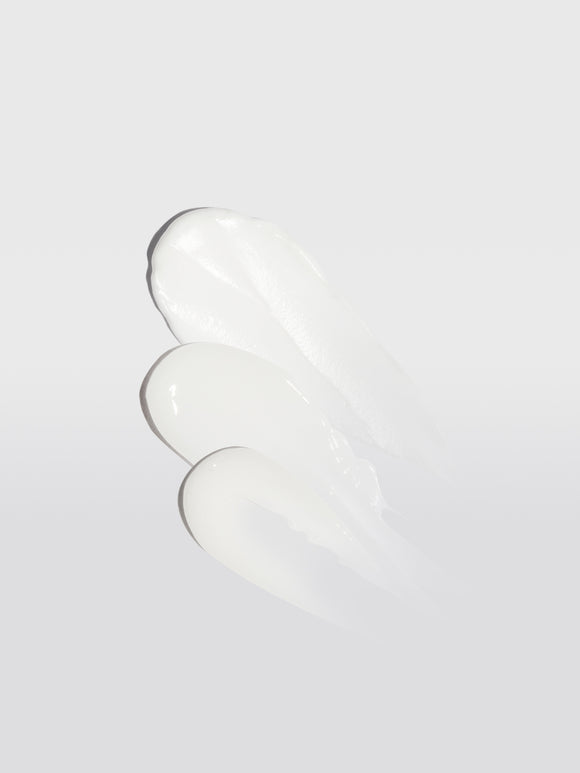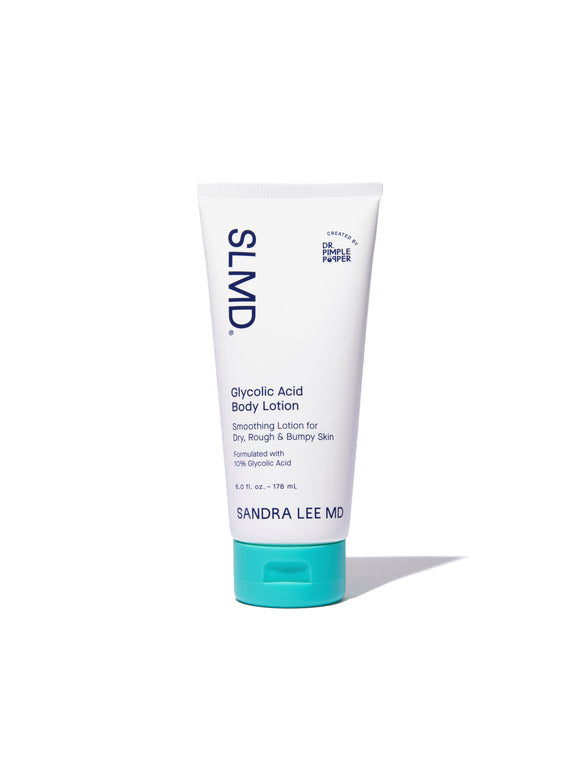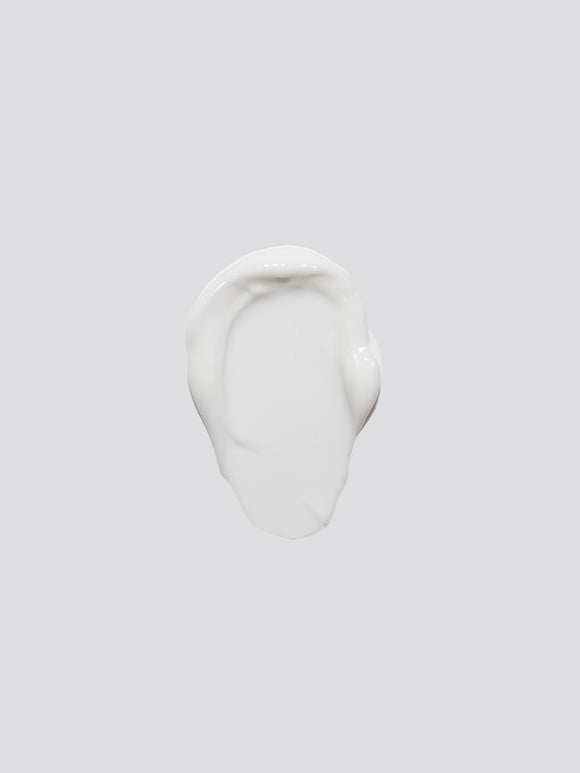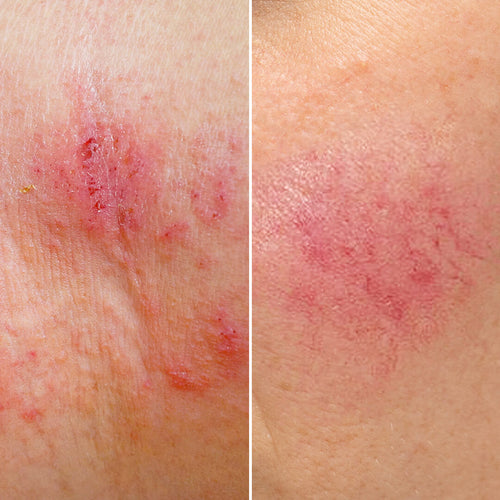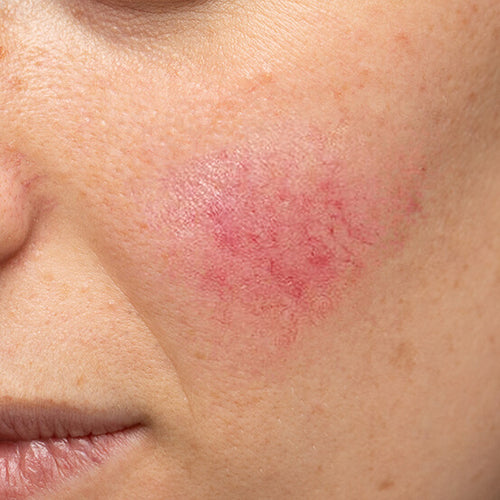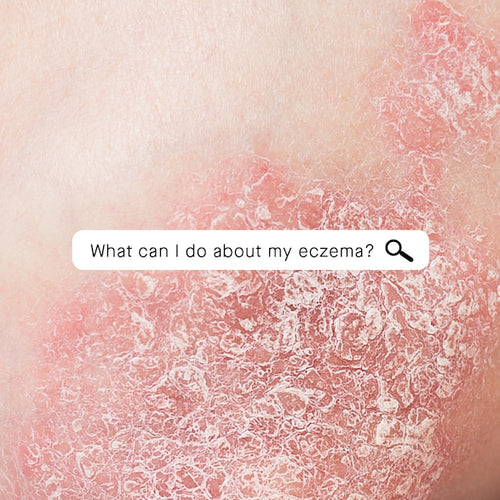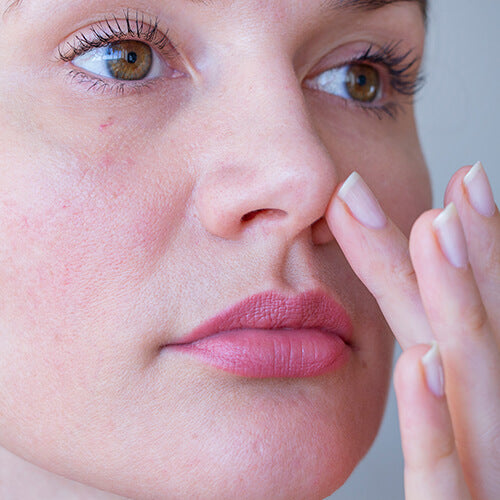
Are Chemical Exfoliants Safe for Eczema and Rosacea-Prone Skin?
Dr. Pimple Popper reveals her top tips for maintaining smooth, calm skin while managing chronic sensitivity.
Published:
5 minute read
If you have sensitive skin or a chronic condition like eczema or rosacea, finding the right skincare can be challenging. Sandra Lee, MD (aka Dr. Pimple Popper), explains that people with these conditions often struggle to find products with active ingredients that won’t trigger a reaction. This is especially true for chemical exfoliants — like glycolic, lactic, and salicylic acids — commonly found in cleansers, scrubs, toners, and moisturizers.
Are these alpha and beta hydroxy acids safe for eczema- and rosacea-prone skin? We’re breaking down what you need to know below.
Article Quick Links
Understanding eczema and rosacea
What is eczema?
Eczema is a chronic inflammatory skin condition that affects over 30 million Americans. It’s characterized by dry, scaly, itchy patches of skin, often aggravated by triggers such as cold weather, certain fabrics, or specific foods.
- Condition type: Inflammatory (immune system overreaction)
- Common triggers: Winter weather, hot water, irritating fabrics, and foods (often dairy)
- Cure: None, though symptoms can be managed or even outgrown
What is rosacea?
Rosacea is another chronic inflammatory skin condition, affecting approximately 16 million Americans. This condition leads to redness, visible blood vessels, and sometimes pimple-like bumps, often on the central face. Triggers for rosacea can include stress, sunlight, and certain foods, making it challenging to manage.
- Condition type: Inflammatory (immune response)
- Common triggers: Stress, UV exposure, spicy foods, and alcohol
- Cure: None, but symptoms can be controlled with lifestyle changes and skincare
Are chemical exfoliants safe for sensitive skin?
People with sensitive skin conditions often wonder if chemical exfoliants are safe. According to Dr. Lee, “Exfoliating is important, even for those with sensitive skin like eczema and rosacea. But you need to choose gentle, low-concentration options and introduce them gradually.”
Chemical exfoliants like AHAs (glycolic acid) and BHAs (salicylic acid) work by dissolving dead skin cells and improving cell turnover, which can benefit sensitive skin types if used correctly. However, the key is to use them in low concentrations and to patch test first, as both eczema and rosacea-prone skin can be reactive.
Dr. Pimple Popper's Sensitive Skin Picks
Benefits of chemical exfoliants for eczema and rosacea
For people with sensitive skin conditions like eczema and rosacea, gentle chemical exfoliants can offer significant benefits when used carefully:
- Improved skin texture: Chemical exfoliants like AHAs and BHAs help reduce the rough, flaky patches often associated with eczema and rosacea. Regular, mild exfoliation promotes smoother, softer skin.
- Enhanced product absorption: Removing the buildup of dead skin cells allows moisturizers and other treatments to penetrate more effectively, helping to keep skin hydrated and balanced.
- Reduced pore clogging and buildup: Gentle exfoliation minimizes dead skin cell buildup that can lead to clogged pores and irritation. This is especially beneficial for people with rosacea, who may also experience acne-like breakouts.
Dr. Lee advises caution when introducing any new products if you’re currently under a doctor’s care for a skin condition. “If you have eczema, rosacea, or any other chronic skin condition and you’re being treated by a dermatologist, always consult with them before adding a chemical exfoliant to your routine,” she says. “It’s important to ensure it won’t interfere with any existing treatments.”
Exfoliating for eczema and rosacea: How to do it safely
Dr. Lee advises that people with eczema and rosacea can incorporate chemical exfoliants carefully, with specific considerations:
Start with gentle, low-strength exfoliants
Both AHAs (like glycolic or lactic acid) and BHAs (like salicylic acid) can be beneficial for sensitive skin in low concentrations. Dr. Lee suggests starting with a wash-off product, such as a cleanser with a low concentration of exfoliant, to reduce the risk of irritation.
Try: SLMD Salicylic Acid Cleanser
Patch test first
Always patch test on a small area before using any chemical exfoliant on the face or body. This step is especially important for skin conditions like eczema and rosacea, which can react unpredictably.
Use sparingly and gradually
Dr. Lee recommends limiting exfoliation to once a week or even less frequently, depending on your skin’s tolerance. People with sensitive skin should avoid daily exfoliation, which may disrupt the skin barrier.
Try: SLMD AHA/BHA Swipes
Follow with a moisturizer
After exfoliating, apply a moisturizer formulated for sensitive skin to help restore the skin barrier. Look for ingredients like ceramides, hyaluronic acid, or colloidal oatmeal to soothe and hydrate. A gentle, exfoliating moisturizer can also be beneficial for body skin.
Try: SLMD Hyaluronic Acid Moisturizer, Hyaluronic Acid Serum, Glycolic Acid Body Lotion
Wear sunscreen daily
Exfoliated skin can be more sensitive to UV rays, so daily sunscreen is essential to protect against irritation and damage.
Try: SLMD Daily Moisturizer with SPF 15
Dr. Lee also emphasizes that exfoliation should be customized for sensitive skin conditions like eczema and rosacea. “Avoid physical scrubs and high-strength acids, as these can be too harsh for delicate skin,” she says. “The key is to start with very gentle formulas, use them sparingly, and always monitor your skin’s response to avoid any potential flare-ups.”
Dr. Pimple Popper answers your FAQs: exfoliating with sensitive skin
Q: How do I perform a patch test before using a chemical exfoliant?
A: To perform a patch test, apply a small amount of the product on an inconspicuous area of skin, like the inner forearm. Wait 24–48 hours and observe any reactions such as redness, itching, or stinging. If no irritation occurs, the product is likely safe to use on other sensitive areas.
Q: Are there specific ingredients to avoid in exfoliants if I have sensitive skin?
A: Yes, if you have sensitive skin, it’s best to avoid high-concentration acids, added fragrances, and harsh alcohols in exfoliants. Look for products labeled as “fragrance-free” and “formulated for sensitive skin” to minimize the risk of irritation.
Q: What signs of irritation should I watch for when using a chemical exfoliant?
A: Common signs of irritation include redness, burning, itching, and stinging. If you experience any of these symptoms, reduce the frequency of use or try a lower concentration. For sensitive skin conditions like eczema and rosacea, even mild irritation could trigger a flare-up, so it's essential to monitor your skin’s reaction closely.
Q: Can over-exfoliation worsen eczema or rosacea symptoms?
A: Yes, over-exfoliating can disrupt the skin barrier, leading to increased dryness, sensitivity, and flare-ups. For eczema or rosacea-prone skin, it’s best to exfoliate sparingly—typically once a week or less—and to use gentle, low-strength formulas to avoid aggravating symptoms.

Dr. Lee's Last Word
When you have a sensitive skin condition like eczema or rosacea, it’s essential to approach exfoliation carefully. Stick with gentle, low-concentration formulas, and introduce them slowly. With the right products and a patient approach, you can enjoy smoother, healthier skin without triggering irritation.



